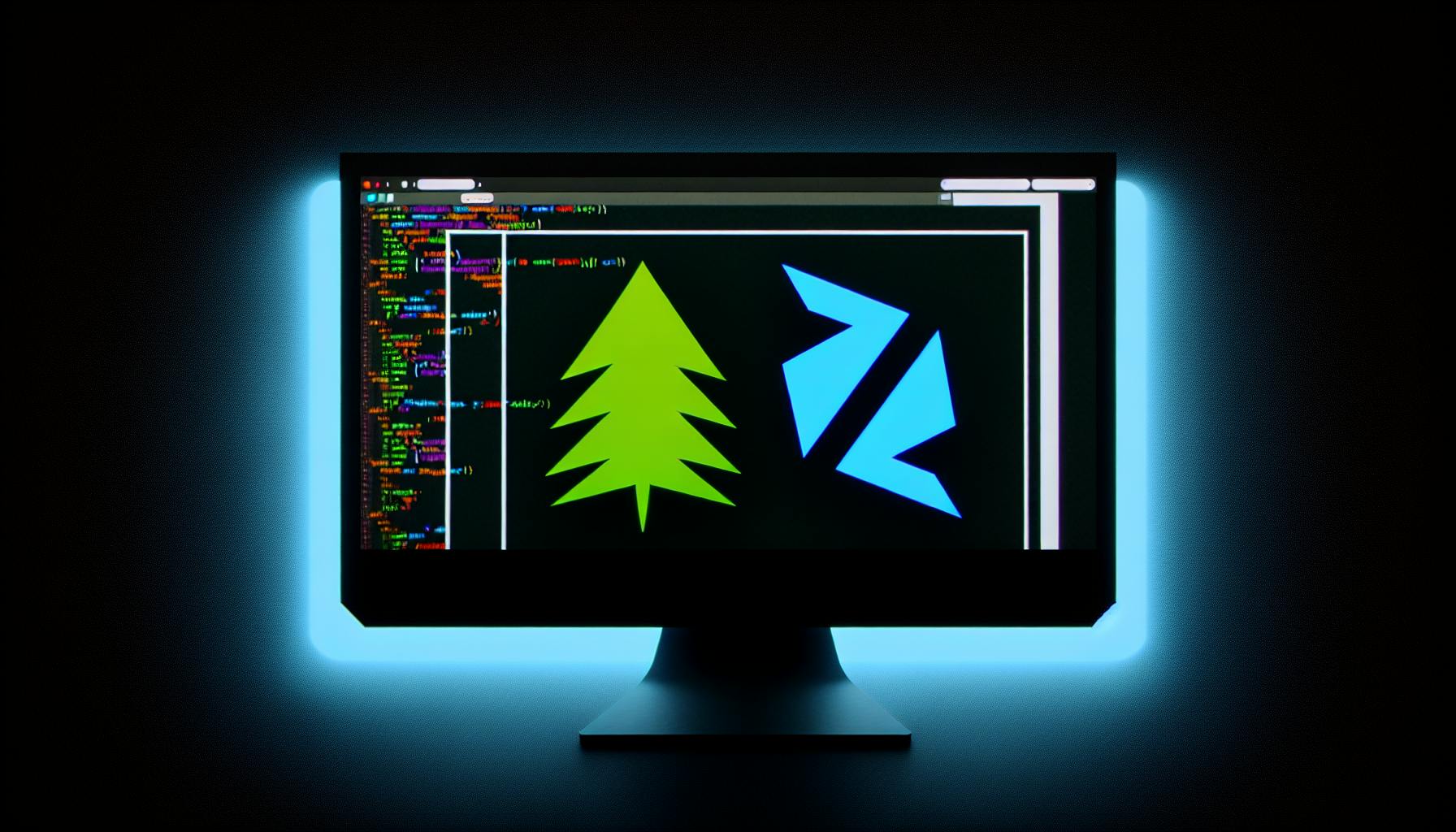Developers worldwide likely agree that robust note-taking is essential, yet most existing solutions don't fully meet their needs.
Exciting open source alternatives to Evernote now exist offering the features developers want most - seamless syncing, markdown support, custom integrations, and more.
In this post, we'll explore these open source options tailored specifically for coders, comparing their capabilities to highlight the best Evernote alternative based on individual developer needs and preferences.
Introduction to Open Source Note-Taking for Developers
Open source software provides developers more flexibility and control over their tools. Many coders are turning to open source alternatives for common applications like note-taking.
Evernote is a popular proprietary note-taking app, but it lacks customizability that many developers demand. Open source options like Joplin cater more specifically to programmers' needs.
Understanding the Appeal of Evernote for Developers
Evernote offers features that make it appealing to developers:
- Synchronization across devices
- Flexible organization with tagged notes
- Code snippet embedding
However, being a closed source commercial product, Evernote lacks the transparency, extensibility, and community-driven development that many coders value.
The Push Towards Open Source Note-Taking Solutions
Developers are increasingly adopting open source note-apps for several key reasons:
- Customization - Open source tools can be modified and extended. Developers can tweak them to suit personal workflows.
- Privacy - With access to the source code, developers can verify an app's security and privacy standards. No closed source surprises.
- Community - Open source projects foster collaboration between contributors and users. This ensures continuity and user-focused development.
Joplin Open Source: A Prime Example of Evernote Alternatives
Joplin is an open source Evernote alternative rapidly gaining popularity among coders. Key features include:
- Code highlight and edit - Joplin makes note-taking ideal for developers.
- Encryption - Joplin offers end-to-end encryption for enhanced privacy.
- Plugins & CLI - Being open source, developers can customize Joplin extensively.
For programmers who desire more transparency and control in their note-taking, Joplin represents the flexible, open source alternative to Evernote.
Is there a free Evernote alternative?
Microsoft OneNote is an excellent free alternative to Evernote for developers looking to organize notes and embed media. OneNote lets you:
- Take notes in a flexible free-form canvas with text, checkboxes, images, code snippets and more
- Sync all your notes seamlessly across devices
- Search notes quickly with instant full-text search
- Share notes and collaborate on them with others
- Integrate nicely into Windows/Office ecosystem
For coders, OneNote offers key benefits over Evernote:
- Embed code snippets and output easily
- Syntax highlighting for many languages
- Links to reference docs/GitHub issues
- Math equation support with LaTeX
- Draw diagrams with stencils
- Record screen captures and annotate them
Overall, OneNote provides much of Evernote's core functionality for free, with solid cross-platform support. While the UI isn't as polished, the features, flexibility and price make it an appealing open source alternative to Evernote for developers and tech professionals.
Is there a Google equivalent to Evernote?
Unlike Evernote, Google Keep is a free note-taking app that uses your Google account's storage. So you get 15GB of storage before needing to upgrade. But most notes don't take up much space, so reaching the limit is unlikely for most users.
Here are some key differences between Google Keep and Evernote:
- Storage and Pricing:
- Evernote has tiered pricing plans from free to premium options with more features and storage. The free plan only allows syncing on 2 devices.
- Google Keep is completely free and uses your Google account's 15GB of storage. No tiers or features locked behind paywalls.
- Platform Availability:
- Evernote has apps for all major platforms like Windows, Mac, iOS, Android, and browser extensions.
- Google Keep runs as a web app and is available as mobile apps on iOS and Android. No desktop app.
- Features:
- Evernote offers more advanced features like document scanning, annotations, offline access, reminders, tags, and notebooks.
- Google Keep provides simpler note taking with text, lists, images, drawing, and labels. But less robust for power users.
- Privacy and Security:
- Evernote faced criticism in the past for privacy and security issues but has since improved its security measures.
- Google Keep leverages Google's security infrastructure. But some users avoid Google products due to privacy concerns with their data collection.
So Google Keep can work for simple quick note taking integrated with your Google account. But Evernote still provides the most fully-featured open source alternative. Check out options like Joplin or Standard Notes if you want note apps with a bigger focus on privacy and security.
Does anyone still use Evernote?
Evernote remains popular among a variety of users despite growing competition from other note-taking apps. Here are some reasons why people still use Evernote in 2023:
- Cross-platform availability: Evernote is available across all major desktop and mobile platforms like Windows, macOS, Android, iOS etc. This makes it easy to sync notes across devices.
- Powerful organizational features: Evernote makes it simple to organize notes into notebooks, tag notes, add reminders and more. This level of organization is useful for personal and professional use cases.
- Integration with other apps: Evernote integrates with several popular apps like Slack, Trello, Gmail and more. These integrations allow seamless transfers of content between Evernote and other tools.
- Collaboration capabilities: Evernote Business allows teams to collaborate by sharing notebooks, assigning user permissions and leaving comment threads on notes. This is beneficial for small teams.
- Web clipper browser extension: Users can easily clip articles, web pages, images from the browsers and save them to Evernote using browser extensions. This helps quickly capture information.
So while many excellent note apps exist today, Evernote's versatility, organizational prowess and third-party integrations make it still relevant for a sizable user base. However, privacy-focused users may want to explore open source alternatives like Joplin.
Can Bear replace Evernote?
Bear is a popular open source alternative for those seeking an Evernote replacement, especially for users focused on Apple devices.
With its clean interface and robust feature set for taking notes and organizing information, Bear makes for an excellent - and free - substitute for Evernote users who:
- Have Macs, iPhones, or iPads as their primary devices
- Desire a simple, intuitive note-taking experience without extraneous features
- Don't require advanced functionality like document scanning or annotations
However, Bear may fall short for Evernote power users that:
- Use the note app across multiple platforms beyond Mac/iOS
- Depend on Evernote's deep capabilities for capturing ideas in many formats
- Need to collaborate with teams and co-edit notes
So while Bear checks the boxes for individual users seeking an open source alternative to Evernote alternative focused on elegant simplicity, those needing broader cross-platform availability and more expansive features would be better served staying with Evernote.
sbb-itb-9c854a5
Essential Features of Open Source Note-Taking Apps
Open source note-taking apps aimed at developers must include certain key features to provide a viable alternative to Evernote. These apps need to go beyond simple note taking and integrate deeply with developer workflows.
Markdown Support and Code Snippets Handling
Seamless markdown support is essential for developers to take notes efficiently. Apps like Joplin and Standard Notes support complex markdown with math formulas, checkboxes, images, and advanced formatting.
Code snippets need specialized handling as well. Features like syntax highlighting, embedding GitHub gists, sharing code snippets to pastebin sites, and one-click execution in a sandbox make apps like Obsidian and Logseq very coding-friendly.
Syncing Capabilities Across Devices
Since developers use multiple devices, open source note apps must provide syncing across operating systems. Joplin has clients for mobile, desktop (Windows, Mac, Linux), terminal, and browser. The sync is end-to-end encrypted. Standard Notes also uses encrypted sync.
For Linux users, open source software like Joplin are the only reliable options for syncing notes across devices.
Integration with Development Tools and Workflows
Seamless integration with developer tools is vital for adoptability. Logseq allows embedding Todoist tasks. Obsidian can connect to JIRA issues or pull up GitHub profiles using shortcuts. Joplin has terminal, CLI, and API access for scripting complex workflows.
Similarly, Git syncing, IDE plugins, Alfred workflows, etc. can help developers directly access and search notes within their existing systems.
Customization and Extensibility for Developers
The open source nature of these apps allows developers to customize and extend them for their unique needs. Plugins, scripts, themes, API access, and self-hosting capabilities give unmatched control.
For example, Joplin has an active community of developers building new features like diagrams, markdown editors, etc. using the apps' extensibility options. This is vital for developers with advanced or niche use cases.
Evaluating the Evernote Alternative for Linux
Linux Compatibility and Native Application Support
When evaluating Evernote alternatives on Linux, native application support is crucial for performance and seamless integration. Options like Joplin and Laverna provide native Linux apps with packages available in most distro repositories. This ensures stability, efficient resource utilization, and access to Linux-specific features.
Cross-platform apps using Electron like Standard Notes and Simplenote may work on Linux but often have resource overhead. Testing different apps to compare performance is advised. Running apps natively using a window manager like i3 or Sway provides the best experience.
Overall, favoring open source alternatives like Joplin with Linux-first development practices ensures the best app support as the platform evolves.
User Experience and Design on Linux Systems
Since Linux desktop environments like GNOME, KDE, and Xfce have different interface guidelines than Windows and macOS, Evernote alternatives should follow Linux UI/UX principles for the best experience.
This includes supporting system themes for light and dark modes, using keyboard shortcuts for efficiency, allowing window tiling for advanced workflows, and conforming to distro-specific interface standards.
While proprietary software like Evernote controls theming and customizations, open source alternatives like Joplin integrate with Linux desktops for a cohesive and responsive user experience. Simple Markdown-based interfaces also shine given Linux's keyboard-driven paradigm.
Community Support and Development on Linux
The open source ethos driving Linux ecosystem growth also powers the community around Evernote alternatives for the platform. Tools like Joplin have lively forums and GitHub repositories enabling user contributions and developer collaboration.
This community-driven approach means Linux compatibility improvements, new features tailored for Linux users, helpful documentation for distros, and overall responsive support.
So when choosing a note app for Linux, evaluate the project's community health. Active forums, pull requests, engaged maintainers signal an open source project's alignment with Linux values.
Deep Dive into Joplin Open Source
As an open source alternative to Evernote, Joplin offers developers a robust, customizable note-taking app with advanced functionality. Let's explore what makes Joplin a compelling choice.
First Impressions: Setting Up Joplin
Joplin is available on Linux, Windows, macOS, iOS, and Android. The desktop and mobile apps sync together nicely via end-to-end encrypted data storage such as Nextcloud or Dropbox.
Initial setup is quick - simply install the app and connect your preferred sync source. Joplin automatically organizes notes into notebooks, which make organizing projects simple. The intuitive interface means you'll be taking notes in no time.
Advanced Features for Developer Productivity
Joplin really shines with features aimed at developers:
- Code syntax highlighting for writing code snippets and sharing them between devices
- Markdown editor with live preview makes it easy to document projects
- Powerful command line interface to automate tasks
- Plugins and custom CSS to customize the app to your workflow
Developers will also appreciate Joplin's robust encryption tools and open API for building custom integrations.
Joplin's Ecosystem and Community Engagement
An active community of users and contributors surrounds Joplin. There are plugin repos, app translations, and forum discussions to help developers extend Joplin's functionality.
The open source model has worked well. User feedback guides development, and it’s easy to engage the creators on GitHub or their forum to influence the project’s future direction.
Comparing Joplin with Other Note-Taking Apps
How does Joplin stack up to other open source Evernote alternatives like Turtl or Standard Notes? Very well, in my opinion.
Joplin offers the most extensive feature set - especially for developers - with plugins, CLI tools, and API access. The active community also gives it an edge.
Standard Notes is great for simplicity and intense privacy. But it lacks Joplin’s advanced tools. Turtl has potential but a smaller community at this stage.
For developers who want a customizable, open source Evernote alternative, Joplin is a superb choice.
Self-Hosted Evernote Replacement Options
Self-hosting a note-taking application can provide more control, customization, and privacy compared to relying on a proprietary service like Evernote. However, running your own infrastructure comes with challenges that developers should consider.
Benefits of a Self-Hosted Note-Taking Environment
Some key advantages of self-hosting a note-taking app include:
- Enhanced privacy and security - By controlling the servers, encryption, and access, you limit exposure of sensitive data.
- Customization - Open source apps allow modifying code to suit specific needs.
- Avoid vendor lock-in - Self-hosting means not relying on a single vendor that could go out of business or change pricing.
- On-premise integration - Potential to integrate better with internal systems behind a firewall.
Popular Self-Hosted Note-Taking Applications
Some open source Evernote alternatives to consider for self-hosting:
- Joplin - Has mobile apps, encryption, tagging, and open source code. Integrates with various cloud drives.
- Turtl - Focused on privacy and security. All user data is encrypted end-to-end by default.
- Trilium Notes - Hierarchical note-taking application with flexible organization.
Challenges and Considerations When Self-Hosting
However, managing your own infrastructure has potential pitfalls:
- Time investment - Administering servers and troubleshooting issues can become a burden.
- Expertise required - Self-hosting requires server, network, and security skills.
- Cost - While low overall, does need hosting, backup, monitoring and infrastructure expenses long-term.
- Scaling difficulties - Supporting large numbers of users on self-hosted apps can be challenging.
Steps to Migrate to a Self-Hosted Platform
For developers migrating from Evernote, main steps are:
- Evaluate open source replacement options and select one that fits needs.
- Set up necessary hosting infrastructure and install chosen application.
- Import legacy Evernote data into new platform.
- Route clients and integrations to new application.
- Decommission Evernote account once migration is finished.
Migrating takes planning but yields more customization and avoids vendor dependency.
Concluding Thoughts on Open Source Evernote Alternatives
Summarizing the key points, open source note-taking solutions like Joplin, Turtl, and Standard Notes provide robust functionality tailored for developers' needs. Choosing the right alternative depends on individual priorities around privacy, customization, integrations, and more.
Recap of Open Source Note-Taking Options
- Joplin offers exceptional Markdown support, sync across devices, and integration with popular editors like Vim and VS Code via plugins. Its open API also enables advanced custom workflows.
- Turtl prioritizes privacy and security with end-to-end encryption. It has solid organizational features but is weaker on rich formatting.
- Standard Notes promotes extensibility through community-built extensions. It excels at simplicity and minimalism.
Making the Decision: Which Alternative Fits Best
Evaluate note-taking needs around formatting, customizability, privacy policies, and third-party connectivity. Joplin leads for dev-focused extensibility while Turtl is best for privacy purists. Standard Notes hits the middle ground.
The Future of Open Source Note-Taking
As demand grows, expect more innovation in areas like AI assistance, automation based on developer activity tracking, and tighter IDE/editor integrations. The open source model's flexibility will continue attracting technologists.


